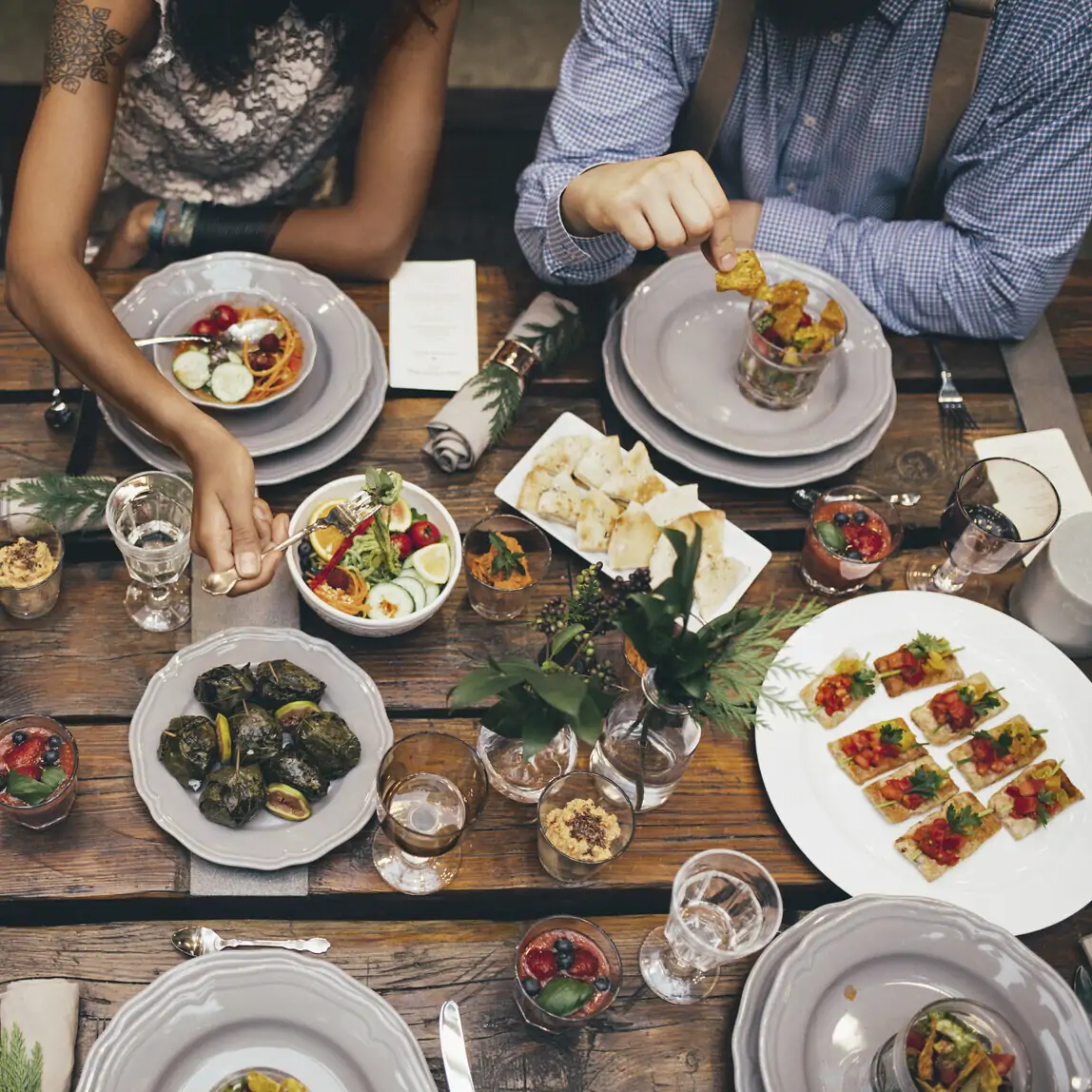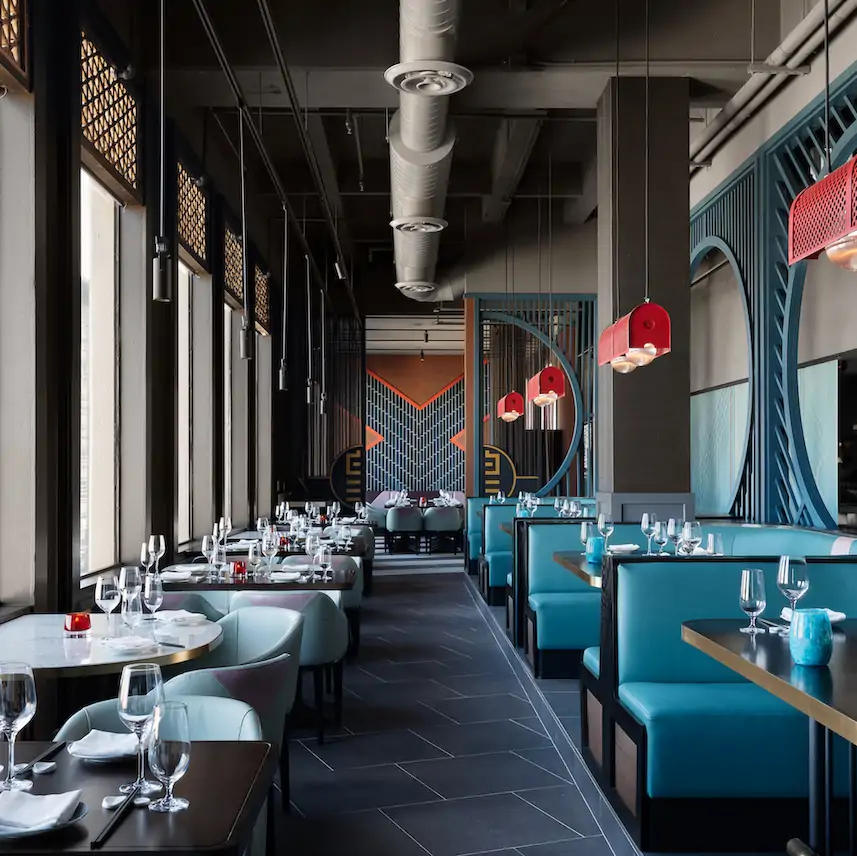November and December are often the most lucrative months for restaurants—and special events typically contribute a lot to those big numbers. The demand for outside catering and private dining during the holidays is consistently high. And it’s not just corporate parties anymore. Many people want someone else to do the cooking so they hire a favorite restaurant to cater when they host events in their homes.
All these parties and events bring not just revenue but also a priceless marketing opportunity. It’s a chance to show off your food to an entirely different group of people, many of whom may not have otherwise heard about your restaurant. And for your regulars, catering can deepen connections and loyalty during one of the most important times of the year.
But handling a large number of events in your restaurant’s private dining spaces and parties in other locales brings major challenges. From menu prep to day-of logistics, events (onsite and off) require close attention to detail in every step of the process. There’s also added difficulty of hiring extra seasonal employees when you may already be understaffed due to the ongoing labor shortage. And don’t forget traffic, which can be heavier during the holidays, or purchasing, which is extra difficult this year thanks to ever-increasing food prices and supply chain disruptions.
Sure, it’s tricky to manage so many moving parts, but doing it well can really pay off. There are many strategies you can call on to capitalize on the busy season. Just follow these tips for success:
1. Keep a calendar of your commitments
Unlike other parts of the year when dates can be more flexible, during the holidays there will be weeks on end when everyone wants to book the same time slot. To prevent overextending your team, have one master calendar for keeping track of all dates and details, and make sure to keep it up to date.
2. Get more private dining leads
Making your restaurant visible and letting people know you offer private dining is the first step of the process. On OpenTable’s Private Dining marketplace, people interested in throwing their holiday event will better discover your restaurant. Add plenty of photos of your private dining spaces and detailed descriptions to help people see if your restaurant is a match for their event. Interested guests can contact you for more info directly through the marketplace, bringing warm leads right to your inbox. Plus, you’ll get all the nitty-gritty details you need up-front to make the event planning process easier.
3. Build a team you can trust
Executing private events is infinitely easier when you’re working with a team of people you can trust. Clearly, the historic labor crunch has only complicated the matter of adding seasonal servers to staff all those holiday events. There are ways to get through it, though. During crunch time, it’s helpful if all team members (front and back of house) can come together to help plate and serve. Cross-training in advance can be a key to success.
4. Over-communicate with guests
Maintaining communication with customers from start to finish is critical to pulling off a successful event. Ideally, that begins with a prompt response to their initial inquiry. Try to be diligent about following up on requests as quickly as possible, because guests can be anxious about booking locations. It’s also a good idea to meet with guests for personalized tastings to nail down the menu. By asking questions and taking the time to understand exactly what they’re looking for, you’ll set yourself up for success. For example, if someone asks for sea bass, be sure to clarify whether they want striped bass or Chilean sea bass so they aren’t disappointed on the big day. Be as specific as possible so you can deliver a great experience.
5. Guide guests in their decisions
To delight guests, it’s equally important to offer your expertise as it is to listen to them. Some guests come to a planning meeting knowing exactly what they want their menu and event to be like, but it’s immediately clear that their wish list doesn’t match up to reality. For example, if a guest wants an event that runs a tight 90 minutes but asks for a four-course menu for 500 people, alarm bells start to ring. Don’t be afraid to share your knowledge and experiences to guide guests to their best possible experience. Tell them what you’ve seen in the past and the lessons you’ve learned along the way. Make your expert recommendations for the best courses of action.
6. Make a detailed timeline for every event
When it comes to successful parties, timing is everything. Take the time to write up a detailed hour-by-hour schedule for the 48 hours before an event. Use half-hour increments to plot out what time food needs to be prepped, to go into the oven, or get chilled in the freezer. Making a good timeline also requires having a strategy; for example, if you only have two ovens, figure out what absolutely needs to go in the oven first, and what can be done at the last minute.
7. Maintain your high standard of service
Unfortunately, it’s not unusual for the service at a catered or private event to be a notch lower than you’d get from the A team in a restaurant’s main dining room. Whenever possible, schedule those A team players to work private parties and outside events. Even if it’s impossible to make some veteran team members part of your private events staff, you can still pass along valuable knowledge that will make them feel comfortable during an event. If you don’t hold service to the high standard your restaurant is known for, people will notice.
8. Stay nimble
Just like managing a dinner service, there will be last-minute changes and other unwelcome surprises during a private event. You can have the best-laid plans and a detailed contract, but you can count on something going sideways last minute. That’s when you and your team have to adjust on the fly and still provide the same level of hospitality. Fast thinking, problem-solving, and flexibility are essential. One way to make sure you stay ahead of the changes is to be present and ask the client how everything is going during the event so you can course-correct when necessary.
Ultimately, holiday events are just one more way to do what restaurants do best: create exceptional dining experiences for their guests in a special atmosphere. When you keep these best practices top of mind, the holiday event season can expose your business to a new audience, make your regulars bigger fans, and boost revenue at the end of the year.




